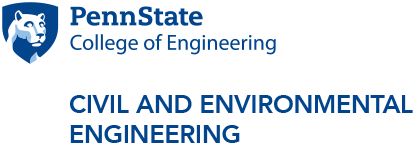CEE Seminar Series: Messy Rivers are Healthy Rivers
Perceptions of river health are strongly influenced by expectations regarding a natural river. Many observers expect clear water, a slightly sinuous river with pools and riffles, and some riparian trees. River health, however, is much more complicated and multifaceted. Dr. Wohl uses mountainous headwater rivers in Colorado to examine the influence of physical complexity on river health.
The recording for this seminar is now available
Abstract: Perceptions of river health are strongly influenced by expectations regarding a natural river. Many observers expect clear water, a slightly sinuous river with pools and riffles, and some riparian trees. River health, however, is much more complicated and multifaceted. Dr. Wohl uses mountainous headwater rivers in Colorado to examine the influence of physical complexity on river health. Complexity can be described with respect to the stream bed, banks, cross-sectional form, and planform of the river and floodplain. The configuration of each of these components of a riverine system has implications for habitat abundance and diversity, sensitivity and resilience of the river to natural and human-induced disturbances, retention of water, sediment and nutrients, and connectivity within the riverine system and between the river and adjacent uplands. Resource use often simplifies rivers to the point that they undergo a thorough, sustained change in channel form and function. Effective, sustainable river restoration involves characterizing the magnitude of different forms of physical complexity naturally present in a particular river segment, understanding the effects of physical complexity on river ecosystem function, and assessing the degree to which this level of physical complexity can be restored or mimicked. An important part of this process may be educating stakeholders regarding the importance of physical complexity—messiness—in healthy rivers.
Biography: Dr. Ellen Wohl received a bachelor’s degree in geology from Arizona State University in 1984 and a doctoral degree in geosciences from the University of Arizona in 1988. She has been a faculty member in the Department of Geosciences at Colorado State University since 1989. Her research is field-based, and she has published extensively on interactions between physical processes and biotic communities in river corridors. Her many prestigious accolades include the 2000 and 2003 G.K. Gilbert Award from the Association of American Geographers, the 2009 Kirk Bryan Award from the Geological Society of America, and the 2017 Ralph Alger Bagnold Medal from the European Geosciences Union.
Additional Information:
Lecture begins at 4 p.m. and will be followed by a question and answer session. Event concludes at 5:30 p.m. Registration is required.
Event Contact: Tim Schley




